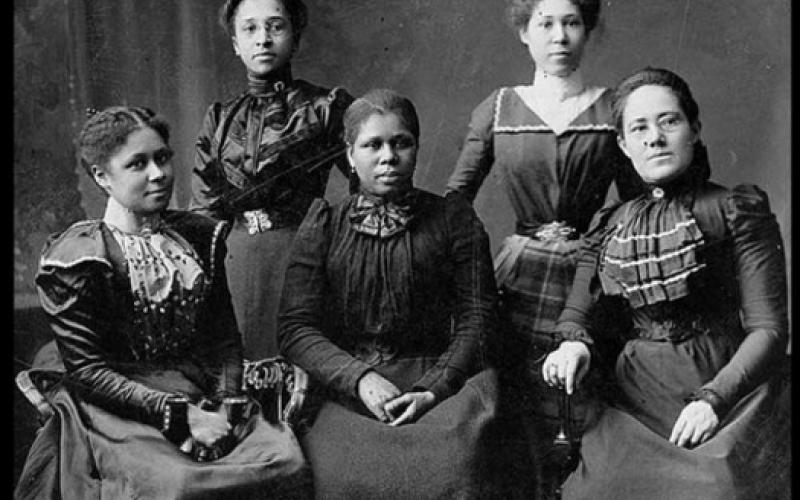
Transitional (In)justice and the Inattention to Women’s Rights in West Africa
For the purposes of this opinion piece, Transitional Justice (TJ) is defined as “the array of processes designed to address past human rights violations following periods of political turmoil, state repression, or armed conflict.” It is also useful to highlight that the current United Nations approach is infused with an objective of accountability and reconciliation, and defined as the “full range of processes and mechanisms associated with a society’s attempts to come to terms with a legacy of large-scale past abuses in order to ensure accountability, serve justice, and achieve reconciliation”. The narrative that accompanies these definitions is particularly acute because country-specific experiences, stakeholder expectations, and definitional boundaries and scope are constantly changing. In practice, these have shifted the focus of TJ from the victim to state building. The reality is even more complex given that there is no way to measure social norms that guide peoples’ interactions with TJ approaches, including truth and reconciliation commissions (TRCs), retributive and restorative justice, reparations, and vetting.
A review of TJ mechanisms in West Africa highlight that these have mostly fallen short of what was promised, and have not done much for victims even many years later. There is a need to interrogate this and other and better ways to respond to victims’ rights and expectations.
This is especially true for countries including the Gambia which are in the early stages of the process, Mali which is still in conflict, and Cote d’Ivoire where reconciliation has not been achieved within a growing politically tense environment. TJ’s ability to deliver is significantly hampered by domestic political conditions, and highlights the need to address structures of power in its implementation, to ensure it doesn’t fall short of the promise of justice for victims. In particular, transitions tend to be inattentive to women’s rights, despite the prevalence of sexual and gender based violence (SGBV) in these contexts.
Looking at Cote d’Ivoire, the Gambia, Guinea, Mali, Nigeria, and Sierra Leone’s experiences, it is evident that supranational transitional-justice arrangements are essentially political, and lack the legitimacy to effect real change. In the majority of these countries, TJ started without enough legitimate authority or acknowledgement by most citizens. In Mali, victims/citizens were not sufficiently consulted in the setting up of the Commission Vérité, Justice et Reconciliation (CVJR) nor civil society sufficiently involved in the drafting of the national TJ policy. The implementation of TJ in Mali by and large is not a result of broad consultation of all segments of society or introduced by way of legislation but rather by executive order. This general top-down approach to TJ and lack of victim-centeredness remains central to its limitations, specifically as it relates to gender and women’s experiences of conflict.
Where gender considerations are included, they are often included as an afterthought – highlighting among many other things, the invisibility and powerlessness of women in the public sphere. This underrepresentation is even more glaring as TJ processes and mechanisms tend to generalize human rights violations alone without regard to the centrality of SGBV. “Even with a flexible mandate and the intention of fairly gathering information about all patterns of abuse, a commission [truth] may well fail to document certain widely experienced abuses. Perhaps the most commonly underreported abuses are those suffered by women, especially sexual abuse and rape. Many commissions have received far less testimony about sexual abuse than in the numbers or proportion that they suspected took place.” West African societies going through transition have failed to de-stigmatize SGBV and overlooked gender in the development and implementation of TJ mechanisms.
The Sierra Leonean experience was positive, despite limited progress, as it paid special attention to the experiences of women during the conflict and women’s groups were primary actors throughout the process. The Special Court for Sierra Leone (SCSL) was a key example for gender justice to be followed by other countries in the sub-region – recognizing gender crimes in its definitions (including sexual slavery and forced marriages), ensuring that 20% of investigations focused on sexual offenses, and facilitating access to health facilities for victims who testified. However, despite these achievements, the political and structural inequalities that shape the lives of women and girls continue to frame the TJ implementation, leading to limited progress in response. This is also true for Liberia, where despite passing a sophisticated rape law in 2006, the prosecution of SGBV remains limited by the inadequate judicial system and lack of relevant information for victims to access the courts. These lacunae are even more glaring in Mali and Cote d’Ivoire where no specific laws and/or mechanisms exist to address SGBV crimes. Ultimately, a replication of the Sierra Leonean and Liberian approaches to gendered justice can only be impactful if they pay special regard to the socio-political conditions and patriarchy which dampen implementation.
Regrettably, when one puts TJ implementation in the region to test, to date, only the moral imperatives have been successful – the ability of TJ to lead to an end of impunity, strengthened rule of law, and reconciliation remains unproven. As we explore creative pathways, and regional initiatives including the African Union’s Transitional Justice Policy Framework (AUTJPF), we should keep in mind that transitional justice is a political field which enables structures of power and the use of violence to persist – usually to protect those that control the exercise of power and the allocation of resources.










